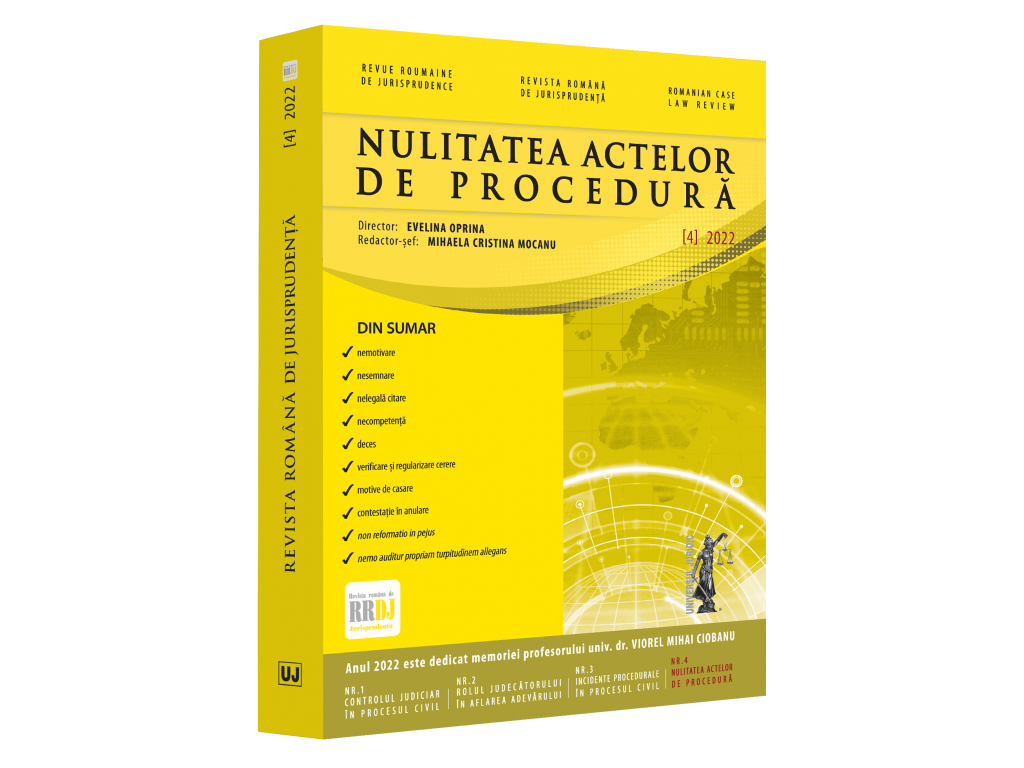Death of the appellant before the close of the appeal proceedings. Nullity of the judgment
JURISPRUDENȚĂ COMENTATĂ ȘI ADNOTATĂ
Abstract
Nullity of the procedural act is the procedural sanction that intervenes in the case of a procedural act that does not meet the conditions laid down by law for its validity, depriving it totally or partially of its natural effects.
The lack of procedural capacity of use gives rise to the nullity of the procedural action, the respective nullity not depending on the existence of an injury as the procedural capacity is a condition of exercising the right to action, so an extrinsic condition of the procedural action.
In the present case, the invalidity of the judgment of the Court of First Instance was raised by the Court of its own motion, in accordance with the provisions of Article 178(1) of the Civil Procedure Code, as a public policy reason, by reference to the procedural capacity of the parties to the dispute, the exception of lack of capacity being a substantive, absolute and peremptory exception.
Legal capacity to use, consisting of the capacity of a person to have rights and obligations in the process, is the application of civil capacity in the process and requires that the party be alive throughout the process.
In view of the provisions of Article 35 of the Civil Code, the appellant-plaintiff lost capacity to use the property by reason of her death and was therefore not a party to the proceedings.
However, if one of the parties was deceased at the time of the closure of the proceedings before the court of retrial, and the provisions of Article 412, final paragraph, of the Civil Procedure Code are not applicable, the judgment of the court, as well as all procedural acts carried out after the death of the party and in connection therewith, are absolutely null and void.
In this context, it should also be borne in mind that declaring a procedural act null and void has the effect of depriving it of the effects conferred by law, in accordance with the principle quod nullum est nulum producit efectum. The invalidating effect of a procedural act carried out in breach of the legal requirements is produced from the very moment when the nullity arises, and not from the moment when it is established, since the nullity deprives the act of its effects in terms of its procedural function.








